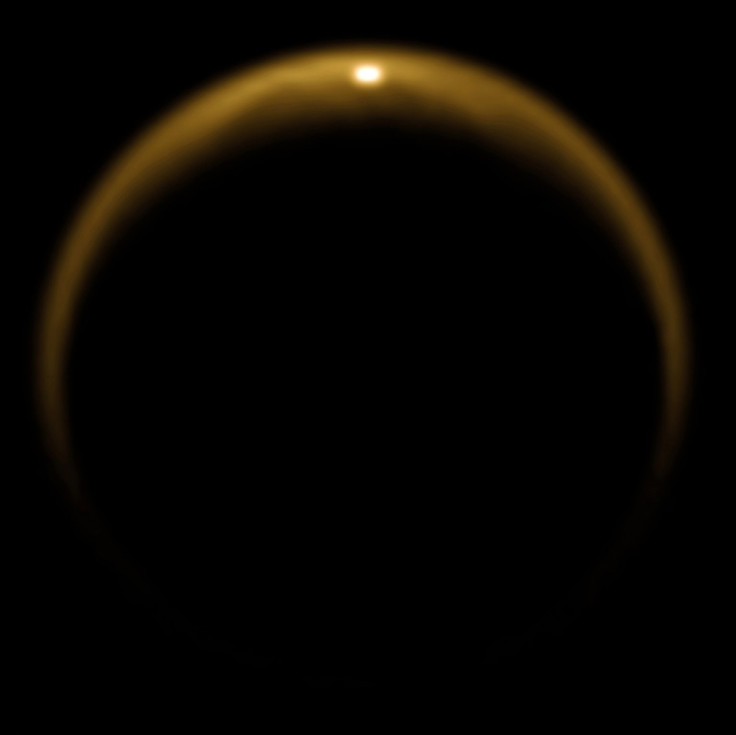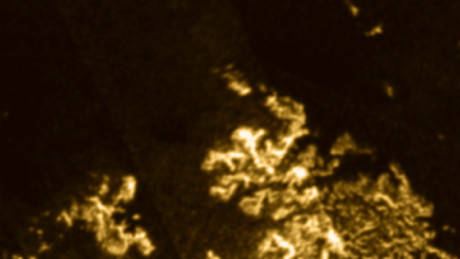Radar Images Detect Unusual 'Magic Island' on Saturn's Moon

Scientists have reported picking up radar images of what they term "magic island," on one of the seas of Titan -- Saturn's largest moon. However, the "magic island" reportedly disappeared soon.
The images were picked up in July 2013 by the Cassini spacecraft, which is part of Nasa's Cassini Mission to Saturn. The spacecraft, which has been traversing Saturn since 2004, was instrumental in reporting evidences linked to a large underground ocean on Enceladus, which is one of Saturn's 62 moons.
According to Cornell Chronicle, the geologic object on Titan's Ligeia Mare sea was mapped at a location, which showed no traces of unusual geological objects prior to 2013.
The Cornell Chronicle report terms the latest discovery as a "transient feature". However, scientists prefer using the codename "magic island" considering the fact that the mystery spot was picked up by the Cassini spacecraft only once. Newly processed images of the Ligeia Mare lake could not detect the presence of unusual objects.
Researchers attribute the "magic island" to dynamic geological processes taking place across the northern hemisphere of Titan.

Jason Hofgartner, a graduate researcher at Cornell University, said, "This discovery tells us that the liquids in Titan's northern hemisphere are not simply stagnant and unchanging but rather that changes do occur".
"We don't know precisely what caused this 'magic island' to appear, but we'd like to study it further", he added.
Titan is known to contain seas that are formed by liquid hydrocarbons such as ethane and methane. Various mountains and dunes made up of ice have also been detected by scientists.
According to researchers, the seas on Titan are formed by weather changes resulting in rain and wind. They believe such seasonal changes could have led to the formation of unusual geologic objects too.
"Likely, several different processes – such as wind, rain and tides – might affect the methane and ethane lakes on Titan. We want to see the similarities and differences from geological processes that occur here on Earth," Hofgartner added.
© Copyright IBTimes 2025. All rights reserved.





















